Coronavirus: First Look at the NHS Nightingale Hospital in London's ExCel Centre
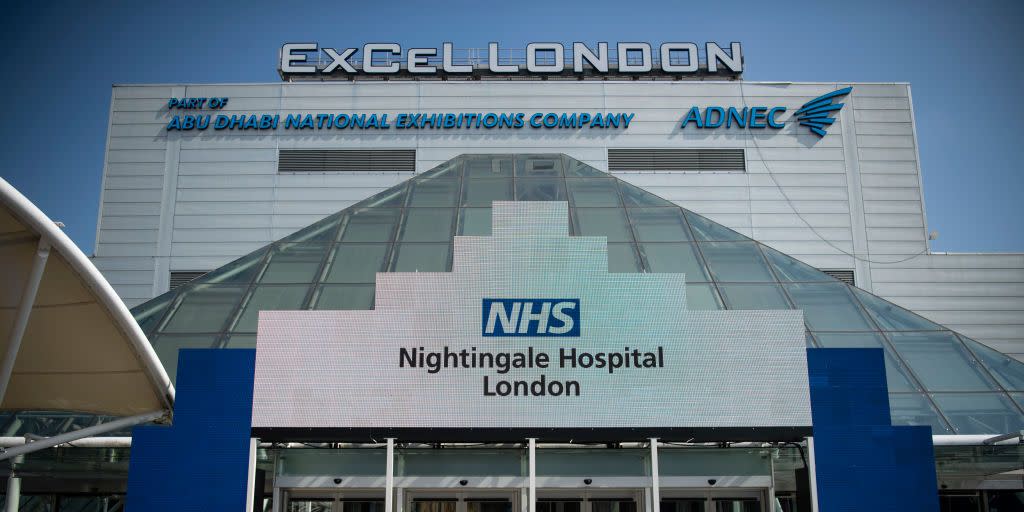
A giant conference centre in east London has been converted into what is now the world's largest critical care facility to help treat COVID-19 patients.
London's ExCel centre has been converted into a Coronavirus field hospital called the NHS Nightingale with capacity for 4,000 patients.
Usually the home of conferences and events including the London Marathon Running Show, the ExCel has been converted into a critical care hospital in just two weeks with the help of hundreds of soldiers and volunteers.
See a first glimpse of what's inside below.
Inside NHS Nightingale


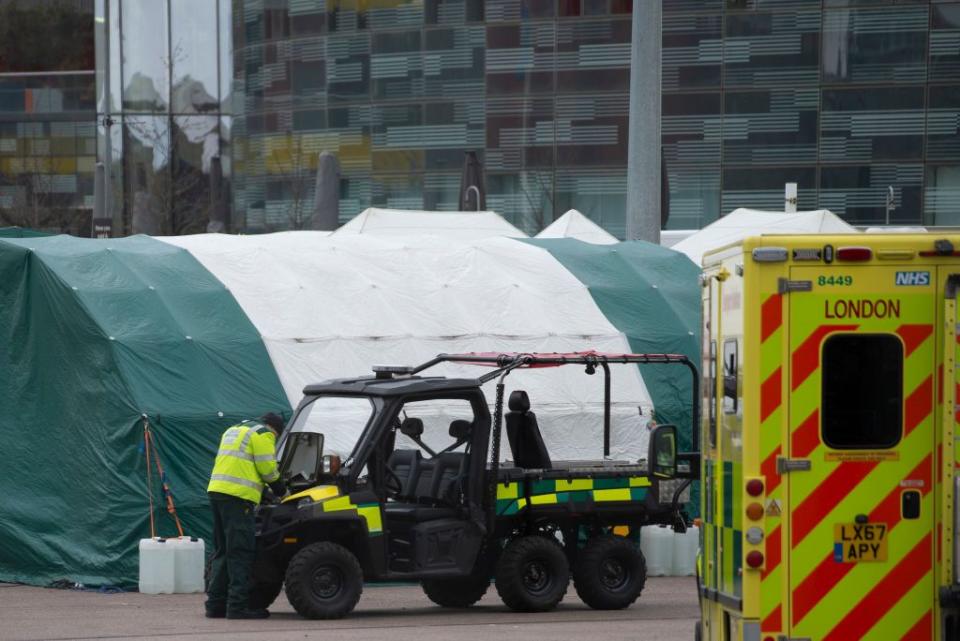
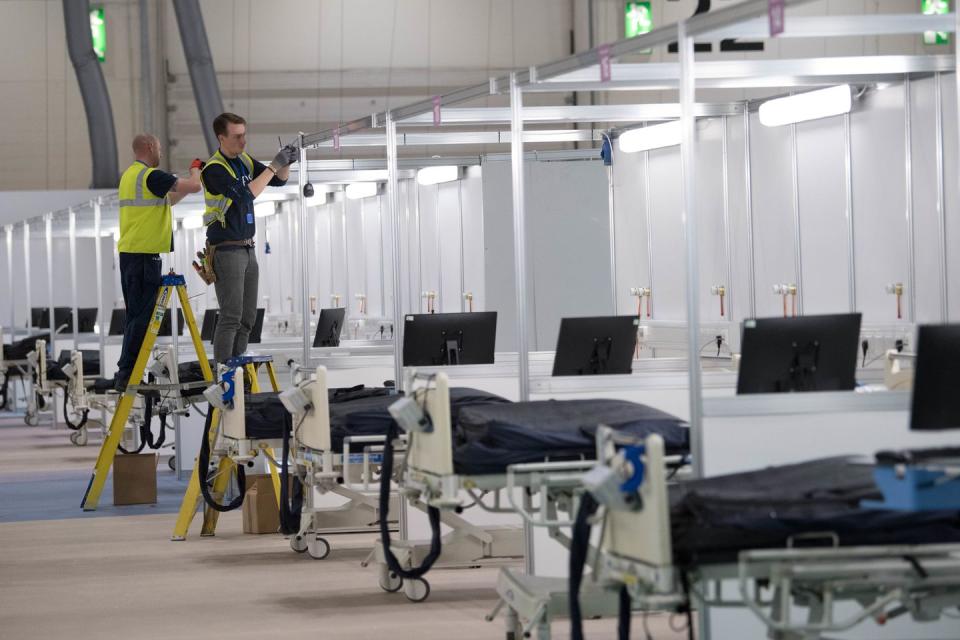
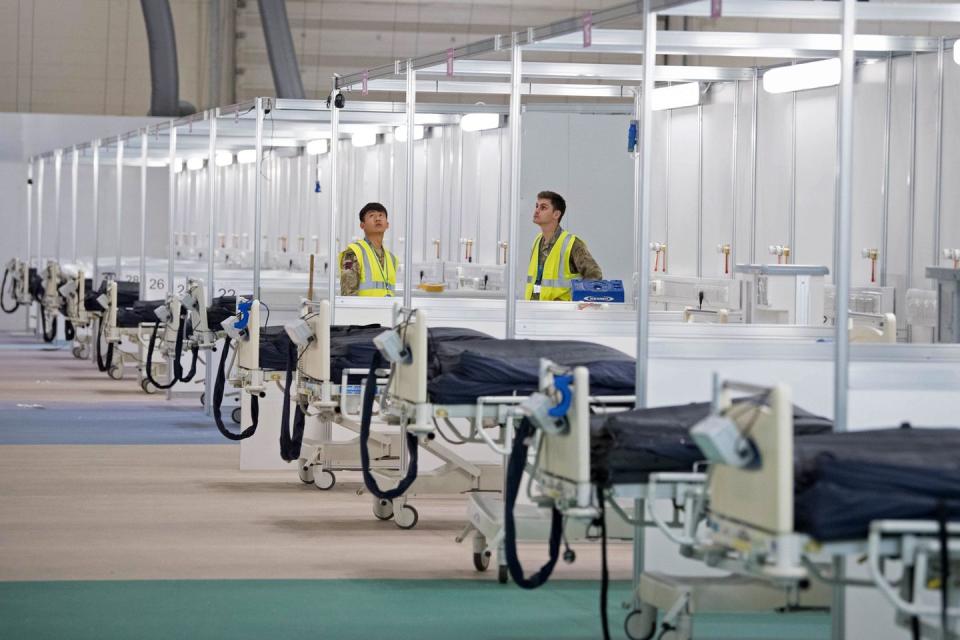
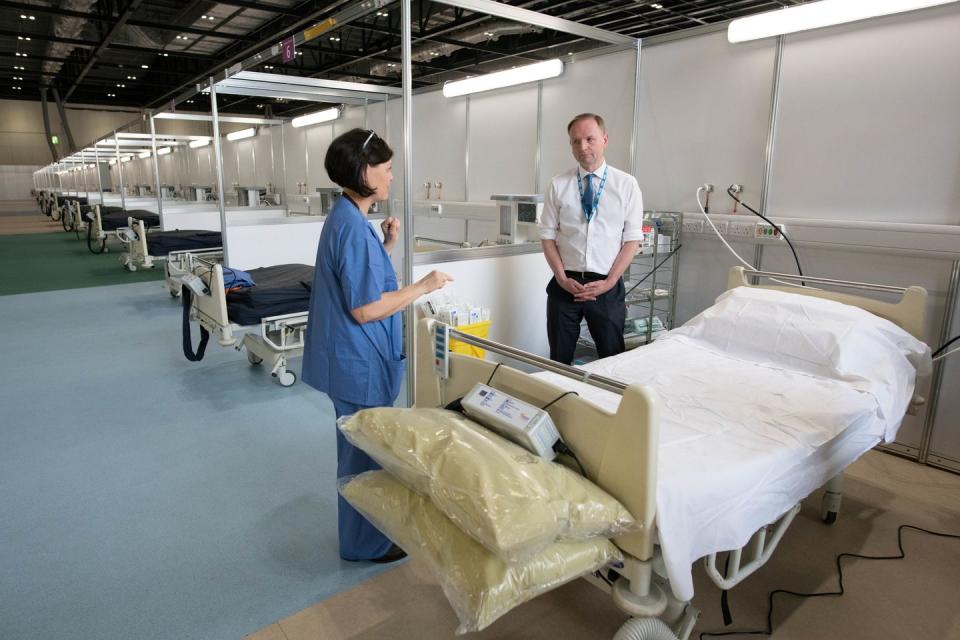
What are the symptoms of coronavirus?
According to the NHS website, the primary symptoms of coronavirus are:
A fever
A new, consistent cough
Other coronavirus symptoms that have been reported include:
Tiredness or fatigue
A headache
Shortness of breath
A loss of smell or taste
Muscle pain
What should you do if you have symptoms of coronavirus?
If you have symptoms of coronavirus you should use the NHS 111 Coronavirus service online. People are being urged to only call 111 if they cannot get help online.
To avoid infecting others, do not go to a GP surgery or pharmacy if you suspect you have coronavirus.
If you need urgent medical help that you cannot get online, call 111. In an life-threatening emergency call 999 for an ambulance.
Disclaimer: The information in this story is accurate as of the publication date. While we are attempting to keep our content as up-to-date as possible, the situation surrounding the coronavirus pandemic continues to develop rapidly, so it's possible that some information and recommendations may have changed since publishing. For any concerns and latest advice, visit the World Health Organisation. If you're in the UK, the National Health Service can also provide useful information and support, while US users can contact the Center for Disease Control and Prevention.
You Might Also Like

 Yahoo News
Yahoo News 
